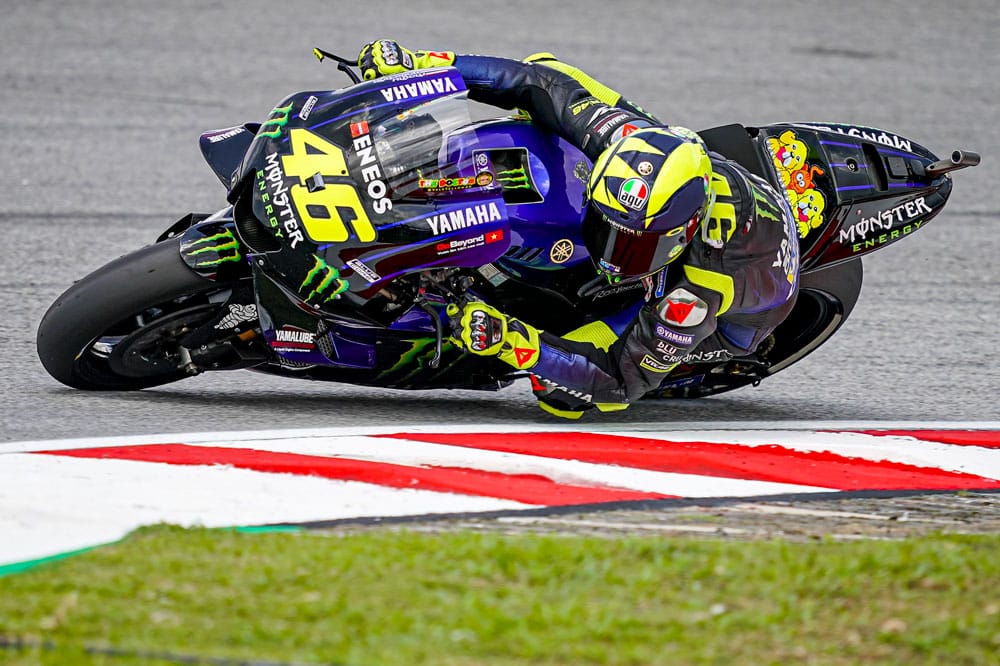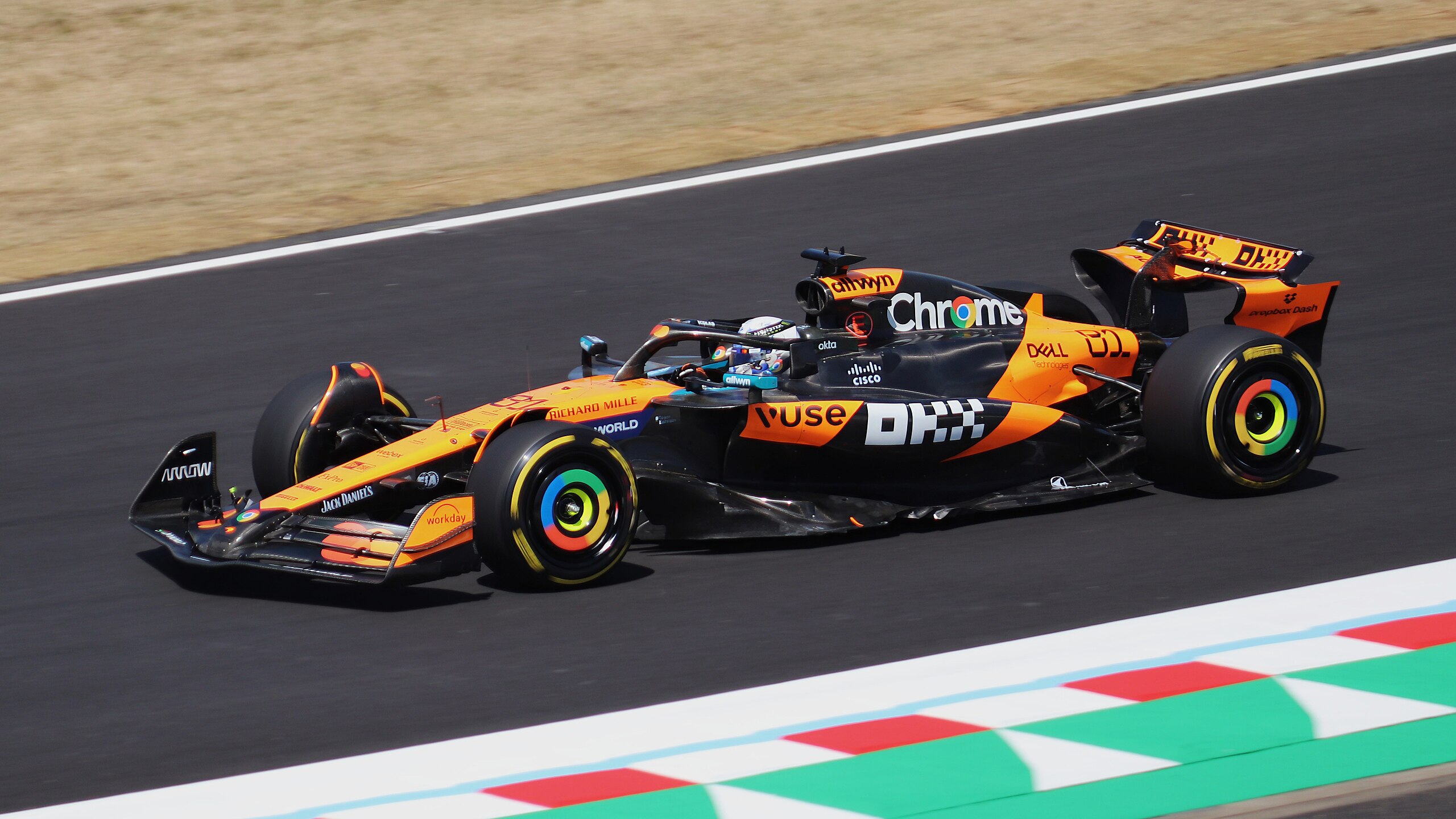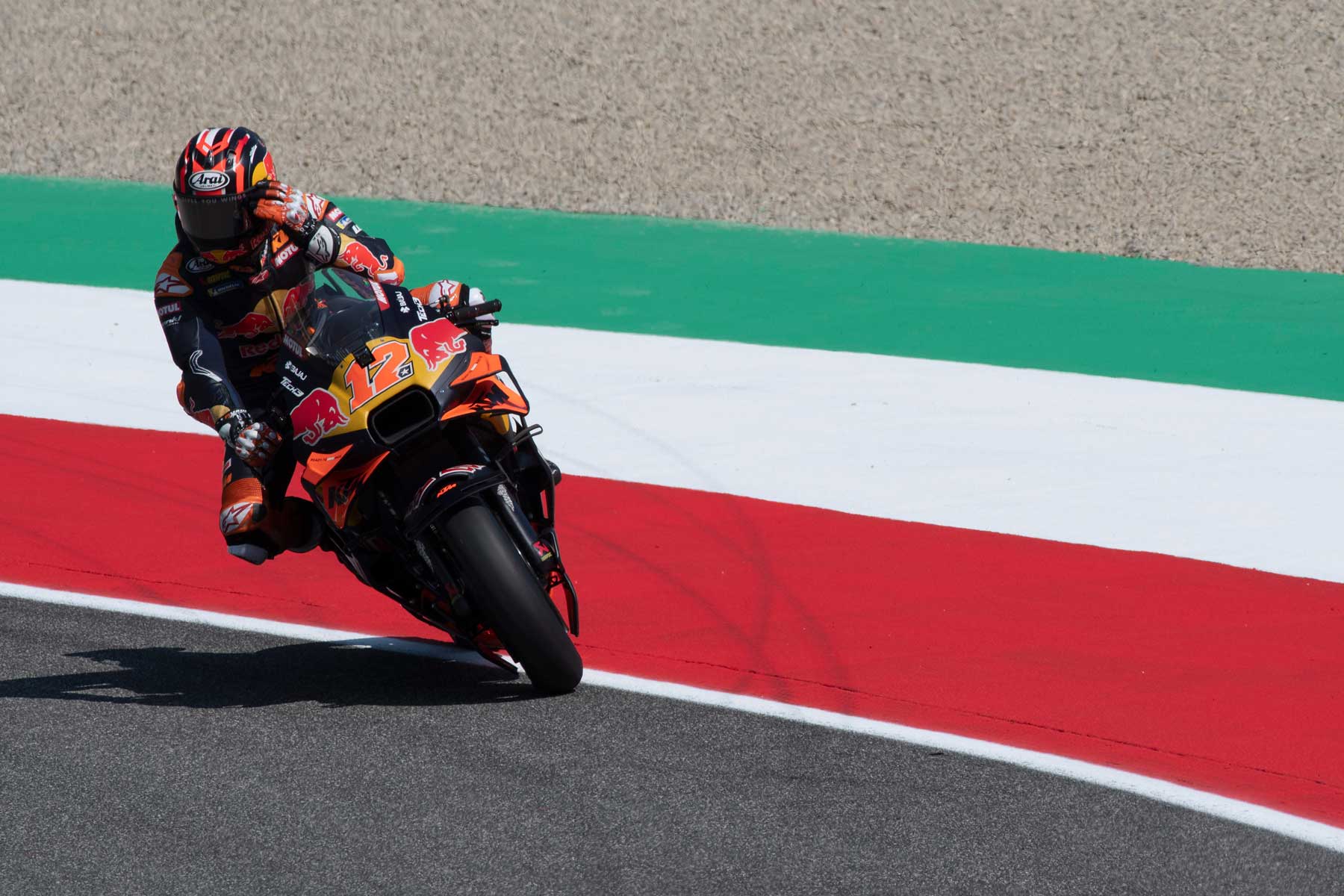Are you willing to sponsor?
Are you ready to explore the transformative power of athlete sponsorship for your brand? Click here to learn more about how sponsorship can help brands grow and thrive in the exciting world of motorsports.
By Emanuele Venturoli| Posted February 3, 2020 | In Sport Sponsorship
On Wednesday 29 January 2020 it was announced that the Frenchman Fabio Quartararo will be in the saddle for Yamaha Factory starting in 2021. This announcement comes hot on the heels of last week’s news from Iwata of Maverick Vinales’ contract renewal: the Spanish rider has extended his contract to 2022.
This is, from a sports perspective, an understandable choice by Yamaha, with two young, fast riders for the coming season, who, to date, seem one of the only cards to play against the superpower Marc Marquez. With 45 years between them as we write, Maverick and Fabio are capable of giving the Japanese manufacturer several years of continuity both in terms of motorcycle development and top racing results.
Stepping down from the official Yamaha squad, however, from 2021 – again according to a press release – Valentino Rossi will be taking time out until mid-season 2020 to decide on his future. Prosaically, Rossi has the choice of two roads: retirement or a luxury satellite seat with Petronas Yamaha with a factory bike and contract.

It is clear that the boundaries of the new MotoGP are being redrawn at the moment. The 2020 and 2021 seasons will radically change the motorcycle Grand Prix scenario, with Marquez probably the new and sole fixed point in world in relentless rotation. The change is still cautious, full of “perhaps” and “who knows”, in which the future of some of the heavyweights in the category are still to be assessed, including Rossi, Cructhlow, Petrucci and so on, not to mention Lorenzo perhaps thrown on the scrapheap with too much haste.
More than everyone else, it is precisely Rossi’s goodbye to the Yamaha MotoGP Team, with whom he won his last four world championship titles, that signals strongly the arrival of a new era of motorcycle racing. It remains to be seen whether Valentino – and it will be his decision alone to tip the scales – will decide to hang up his helmet or continue on a satellite Yamaha with the Petronas Team.
The rest of the paddock won’t just stand by and watch. Whilst Ducati continues its incredible technological evolution, bringing an extraordinary number of new designs and solutions season after season, Suzuki, Aprilia and KTM have absolutely no intention of sitting on the side-lines.
Everyone knows that Valentino is a huge and very important name in MotoGP, not only from a sports perspective. Though it is true that Rossi hasn’t won a title since 2009, so ten years ago, it is also true that the “Pilota da corsa con il numero 46” is still the face and the biggest asset of MotoGP. The yellow stands, the thousands of Number 46 stickers and the media coverage of The Doctor bear witness to a sportsman who has, in many respects, become bigger than the sport.
Rossi has driven MotoGP into the modern era: the last rider to win the 500cc championship and first rider to win in the current MotoGP, making the racing bike the object of desire for a generation of the very young and not-so-young. It wouldn’t be taking it too far to say that Rossi had a nationwide impact: during the period of triumph and colourful celebrations, Rossi was an integral part of the Sundays of an entire nation, who gathered religiously in front of the TV after lunch to follow his feats on racing tracks all over the world.
There are many who, precisely because of that described above, fear that MotoGP may suffer shockwaves from the retirement, or gradual withdrawal, of Number 46, as much in terms of finance and image as for the sport. Valentino Rossi, as well as having always been a magnet for big sponsors, is also a big driver of audiences in a sport supported by Pay per View. Rossi is a great sportsman, but also a star with a big social media profile: a godsend for television programmes that broadcast motorcycle Grand Prix and third-party economic operators that revolve around the paddock.
Without one of the biggest sportsmen in history, the more sceptical are wondering whether there will still be sponsors ready to invest and broadcasters queuing up to grab the television rights for the races?
In this blog, we have already outlined the situation that is forming for MotoGP, by saying that it has been years now that squads, championships and sports organizations have been preparing solutions and transition periods for when the big stars decide to end their long and glorious careers.
Without returning to this discussion, here, we need to make two true and necessary considerations: the first is that it would be naïve to believe that Rossi stepping down, or his relegation to a satellite team, wouldn’t have any effect on the motorcycle Grand Prix circus; the second, on the other hand, is that Valentino’s goodbye won’t mean the end of MotoGP or its fall into oblivion.
It is essential that we remember, in fact, that the motorcycle Grand Prix is the greatest expression of the whole motorcycle racing movement, which every year engages millions of people at every level. As long as there are motorcycles, there will be MotoGP, and as long as there are motorcycle enthusiasts, there will also be fans of motorcycle racing.
So, having determined that the motorcycle Grand Prix won’t be leaving with Valentino, the greater of lesser success of MotoGP, and the involvement of sponsors and television, will be closely tied to the competitiveness of the sport. The more thrilling the race, the more riders will compete; if the manufacturers bring to the track bikes that can race one another on an equal level, it’s hard to imagine that the sport won’t have a very bright future.
On the other hand, we always tend to think that the departure of a great champion, such as happened with Jordan stepping down from professional basketball, Sampras and Agassi’s final salute to professional tennis and so on, leaves an unfillable void. It is a totally understandable but often unfounded fear of the new.
Sports, whose fortune is certainly based in part on the presence of great champions, have, however, the ultimate goal of being enthralling and exciting. This happens when the competition is fierce, the outcome uncertain and the final result could go in any direction.
Finally, it is important to look further away from home when we analyse broad-ranging issues.
It is clear that the geography of racing (but it is also true for sport in general) is changing, with market openings that just ten, fifteen years ago seemed impossible. In the MotoGP Calendar, more than 33% of races are now held outside Europe, whilst in Formula 1 half of the races (11 out of 22) are now held on other continents. New tracks, new audiences, but also new important sponsors (such as Petronas) that force a change in perspective towards a future of the sport far from the old distinctions.
It is precisely for these reasons that the training championships that race under the aegis of Dorna, such as the British Talent Cup and the Asia Talent Cup, which seek to identify new talent far from Italy and Spain, are essential in the long term.
Are you ready to explore the transformative power of athlete sponsorship for your brand? Click here to learn more about how sponsorship can help brands grow and thrive in the exciting world of motorsports.

A graduate in Public, Social and Political Communication from the University of Bologna, he has always been passionate about marketing, design and sport.
The online platform where you can discover the latest trends, strategies and insights from the exciting world of sports marketing.
View our blog
July 1, 2025
In the complex and exciting world of Formula 1, performance no longer belongs exclusively to wind tunnels and race strategies. It also unfolds in boardrooms, brand labs, and experiential mark[...]
Read More
June 18, 2025
When you think of sports, what comes to mind? For many, the answer is sports marketing management. We see Super Bowl or Olympic commercials and it seems like every other product is marketed t[...]
Read More
May 6, 2025
Motorsport sponsorship has long been perceived as the domain of corporate giants, with multinationals like Shell, Red Bull, and Petronas dominating the paddock. However, in recent years, a ne[...]
Read MoreIn an era where it is possible to get anywhere with a click, there is a strong temptation to approach teams and properties directly for sponsorship projects.
By doing so, we are convinced that we are shortening the value chain, saving time and money. However, these DYI methods are anything but risk-free and what initially appears to be a competitive advantage soon turns into a problem that is difficult to resolve. That’s why there are agencies. And this is why you should rely on us for your sponsorships.
When first approaching a sponsorship or sports marketing project, it is difficult to know immediately which stakeholders are correct, what the decision flow is, and what the right timelines are for each process. Sports is a very specialized field of action, and fitting effectively into its paths can take a lot of time and therefore money. We, on the other hand, know referents and spheres of action and know who to talk to, when and how. So you are also more effective.
Sports is an immense passion, and for our heart colors we would be willing to do anything. But business is a different business, and it is important to make the best possible strategic decisions based on independent research, statistics and reliable data. A sports marketing and sports sponsorship agency like RTR has an objective, 360-degree picture of the scenario and can tell you what is really best for you: which sport, which athlete, which team. This is because we possess a great deal of data and information on ratings, segmentation and attitudes. Because the numbers don’t lie. Never.
Activations are the real heart of sports sponsorship. Without them, there remains only a blank sticker on a motorcycle, car or uniform and no contact with the public, no emotional connection, no impact on the bottom line. Then how do you do it? It certainly won’t be the teams or the athletes who will help you leverage sponsorship and enjoy the many marketing rights you have paid for. To bring out the best in a sports marketing project you need an agency that knows how to use sponsorship to engage the fanbase on the Web, to reach out to Shopping Centers, to organize hospitality, to develop B2B and B2C opportunities, and to get “your” athletes in front of millions of potential consumers.
Would you ever go to the dealer who sold you the car and ask if the competitor’s car is better? No, of course. So, how do you expect to get firm measurements of the effectiveness of your sponsorship if you do not rely on someone super partes? At RTR, we have always worked with independent third-party agencies that allow us to know the return on any exposure of your brand on TV and in the media. In addition, we believe in calculating ROI as the ultimate measure of your success-so we can tell you for every penny you spend how much you are making.
We have been involved in sports sponsorship and sports marketing for more than 15 years. We are consultants in the sense that our goal is to maximize your investment, but we are also an agency that manages the project from start to finish. We have been doing this since 1995 with passion and professionalism, following three principles that have become cornerstones of our business: independence, verticality and transparency.
I would like to highlight the fact that one of the qualities of RTR is its great ability to approach the sponsorship scenario strategically, together with its passionate attitude, its amazing enthusiasm for solving problems, and its high level of professionalism.
Gianluca Degliesposti
Executive Director Server&Storage EMEA
Eurosport is truly delighted with its business relationship with Riccardo Tafà, who has become extremely popular, thanks to his detailed knowledge of the sports marketing sector and his highly diligent attitude to work.
Francois Ribeiro
Commercial Director
Passion and Expertise are the features that I have found in RTR since the very beginning. Serious and reliable professionals but also very helpful, nice and open-mind people, willing to listen and compare different ideas. All the values in which RTR believes make this agency a partner, not just a supplier, a partner with whom we have had the opportunity to achieve significant commercial results in term of success and image.
Luca Pacitto
Head of Communication
We have been working with RTR Sports Marketing for over 10 years. The objectives and the programmes of collaboration continue to be renewed and to grow with mutual satisfaction. I believe RTR is a team of great professionals led by Riccardo Tafà, who I consider a manager of exceptional skills and with a great passion for his work.
Lucio Cecchinello
Team Principal
I have known and worked with Riccardo Tafà since 1995 when we collaborated for the first time on a project for the Williams Formula 1 team. Several clients followed. After leaving Williams to work for Gerhard Berger then owner of the Toro Rosso F1 Team, I turned again to Riccardo to seek his help in finding a tool supplier for the team and Riccardo duly obliged with an introduction to USAG, a partnership with Toro Rosso which endured for five years. I recently started a new role as Group Commercial Director for the renowned Andretti Autosport organisation and I find myself working with Riccardo once again on a number of interesting projects. Why has this relationship with Riccardo endured ? He’s smart, knows the commercial side of sport inside out and back to front and he’s honest and trustworthy. Riccardo Tafà is a “doer” not a “talker”: in over 20 years I have never had a dispute either with him or with a company that he has introduced and each partnership introduced by Riccardo has delivered quantifiable ROI to rights holder and sponsor alike. I can think of no better testimonial of Riccardo’s diligence, knowledge, contact base and hard work than that.
Jim Wright
Group Commercial Director
The online platform where you can discover the latest trends, strategies and insights from the exciting world of sports marketing.
View our blog
July 1, 2025
In the complex and exciting world of Formula 1, performance no longer belongs exclusively to wind tunnels and race strategies. It also unfolds in boardrooms, brand labs, and experiential mark[...]
Read More
June 26, 2025
The European Commission has provided Liberty Media Corporation with unconditional approval to complete the acquisition of the MotoGP World Championship. The process of annexing the top motorc[...]
Read More
June 18, 2025
When you think of sports, what comes to mind? For many, the answer is sports marketing management. We see Super Bowl or Olympic commercials and it seems like every other product is marketed t[...]
Read More